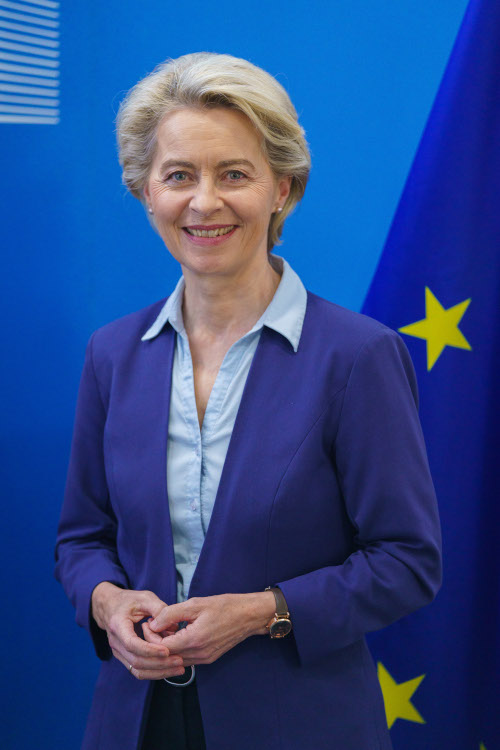Ursula von der Leyen, President of the European Commission

2022 was a year to remember. Responding to the unjustified invasion of Ukraine by Russia has been at the top of all our agendas. It has permanently changed the nature of Eurojust’s work. Just over a month after the start of the war, I spoke with President Zelensky following the atrocities discovered in Bucha and other areas from which Russian troops had left. I was determined to see the European Union lead the fight for full accountability for the horrendous crimes committed in Ukraine. We immediately recognised where Eurojust could help, and it has more than lived up to the challenge.
Determining how to store, preserve and share evidence in the midst of an active war was the first hurdle. Refugees fleeing the country often take vital testimonies with them. Multiple investigations were opened, which are now ongoing in more than 20 countries including 16 EU Member States. The joint investigation team (JIT) set up with six Member States, Ukraine and the International Criminal Court (ICC), also relies on Eurojust’s active support and cooperation with the United States. Coordination here is crucial. In April 2022, the Commission presented a proposal to make the storage of evidence at Eurojust legally possible, and, following its adoption in record time, Eurojust established its new Core International Crimes Evidence Database (CICED). The next step was to coordinate the activities of prosecutors.
In this vein, I welcome the closer collaboration between the ICC and Eurojust, to ensure, for example, that international crimes and human rights violations are appropriately documented, with the needs of victims in mind. Thanks to joint guidance, civil society organisations conducting interviews on the ground have already been well guided in their laudable efforts. With specific regard to investigations into crimes of aggression and as announced at the 24th EU-Ukraine Summit in February 2023, the Commission supports the development of a new International Centre for the Prosecution of the Crime of Aggression against Ukraine (ICPA) in The Hague. It is important that this is attached to the existing JIT because as a participating member, the ICC can also provide strategic guidance on how evidence can be collected and used by prosecutors.
Eurojust also made a significant contribution in 2022 to the Commission’s ‘Freeze and Seize’ Task Force. It has already identified links between sanctioned individuals and companies, collected necessary information for the confiscation of assets and supported national investigations into circumventions of Union restrictive measures. As the world mobilises its support for the reconstruction of Ukraine, we are exploring possible ways to make use of frozen assets for this purpose. We will also be counting on Eurojust’s unique position to support investigations once violations become a crime across the Union. Just as no perpetrator of war crime must slip through the net, neither should anyone violating the restrictive measures intended to block funding to the Russian war machine.
Eurojust has stepped up to the plate and has proven exactly what it is capable of. In 2022, it handled more cases than ever before. It had an increasing number of countries, beyond the European Union’s borders, seeking out its expertise while taking on new responsibilities that will prove essential over the years to come. I want to thank Eurojust’s dedicated staff, including President Ladislav Hamran and Vice-Presidents Margarita Šniutytė-Daugėlienė and Boštjan Škrlec for the work the organisation has been doing, and I am proud of our work in the Commission to support it. I look forward to seeing even more from you in 2023!
